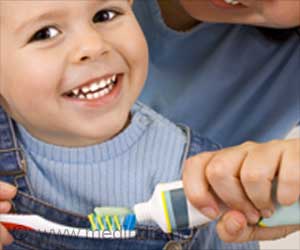
Children Are Happy to Play Adventurous Games
‘Children who play adventurously build the resilience needed to cope with, and manage stress in challenging circumstances like COVID-19 lockdown.’
Tweet it Now
A study led by the University of Exeter asked parents how often their children engaged in play that was “thrilling and exciting”, where they might experience some fear and uncertainty.The study comes at a time when today’s children have fewer opportunities for adventurous play out of sight of adults, such as climbing trees, riding bikes, jumping from high surfaces, or playing somewhere where they are out of adults' sight.
With funding from a UKRI Future Leaders Fellowship, the research team surveyed nearly 2,500 parents of children aged 5-11 years. Parents completed questions about their child’s play, their general mental health (pre-Covid), and their mood during the first COVID-19 lockdown.
The research was carried out with two groups of parents: a group of 427 parents living in Northern Ireland and a nationally representative group of 1919 parents living in Great Britain (England, Wales, and Scotland).
Researchers found that children who spend more time playing outside had fewer internalizing problems which are characterized as anxiety and depression. Those children were also more positive during the first lockdown.
Advertisement
Let Us Encourage Children To Play
The effects were relatively small, as would be expected given the range of factors that affect children’s mental health. However, results were consistent even after researchers factored in a wide range of demographic variables including child sex, age, parent employment status, etc., and parent mental health.
Advertisement
These findings also highlight that we might be able to help protect children’s mental health by ensuring they have plentiful opportunities for adventurous play.
This is positive because play is free, instinctive, and rewarding for children, available to everyone, and doesn’t require special skills. We need to invest in and protect natural spaces, well-designed parks, and adventure playgrounds, to support the mental health of our children.
Every child needs and deserves opportunities to play. This is even more vital to help children thrive after all they have missed out on during the Covid-19 restrictions. More play means more happiness and less anxiety and depression.
Children and young people need freedom and opportunities to encounter challenges and risks in their everyday playful adventures.
It is clear from the research findings that playing, taking risks, and experiencing excitement outdoors make a positive contribution to children’s mental health and emotional well-being. The rewards of allowing children to self-regulate and manage the challenge in their play are widespread and far-reaching.
Source-Medindia















